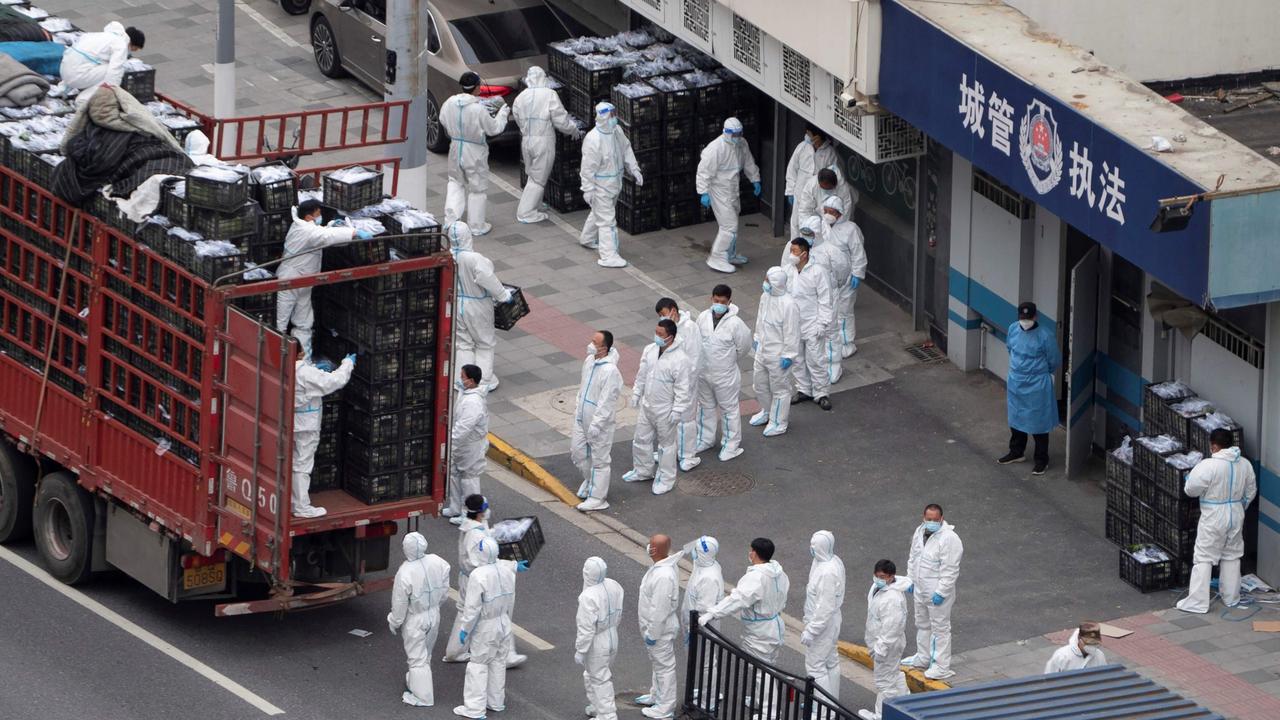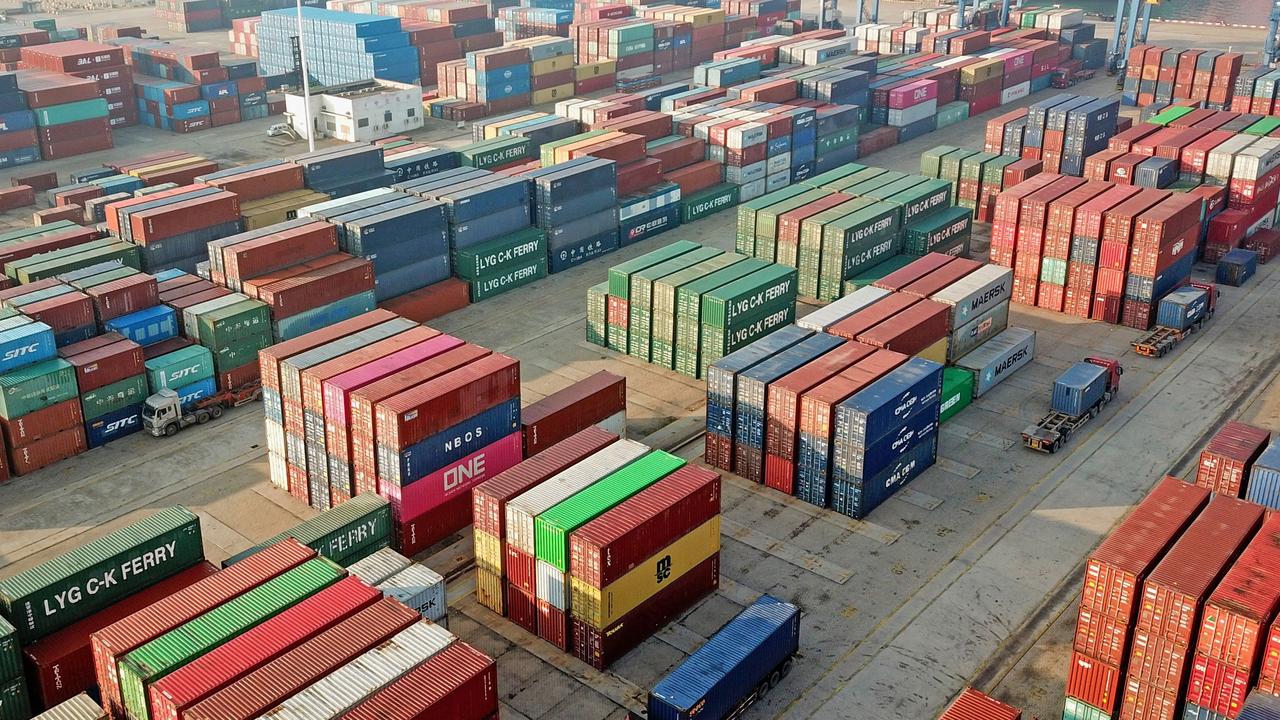How China’s Covid lockdowns will impact Aussies
China’s Covid-zero strategy and harsh lockdowns will create wide-reaching problems, including for everyday Australians.

China wanting to maintain its zero Covid strategy amid its worst outbreak since the start of the pandemic has led to millions of people in lockdown and restrictions that will have far-reaching impacts – including on Australians.
The country reported more than 20,000 new cases on Wednesday, the highest daily tally given since the start of the pandemic.
China is our largest trading partner, so when there is significant disruptions to the supply chain consumers here can expect delayed online shopping and gaps on shelves.
“Covid induced lockdowns in China and the Russia-Ukraine war has torn apart the expectations of recovery of the supply chain, which has been grappling to keep up to the pressures of implications resulting from these and many more disruptions,” chief executive of Container xChange Christian Roeloffs said, explaining the China situation was like a "traffic jam”.

How will the major supply chain disruption affect you?
Areas affected by recent lockdowns include technology and manufacturing hubs Shenzhen and Dongguan, which has created big supply chain problems globally given what they make and how much they are relied on.
David Leaney, an International Supply Chain Management lecturer at Australian National University, said Australians are less likely to see whole shelves empty in stores but rather gaps.
“It’s impacting the flow of raw materials, finished goods, the enablers we need the supply chain to work and particularly the availability of people” he told news.com.au.
“It’s going to mean shortages of some stocks in really hard to predict and almost seemingly random patterns.
“Anything you can say is the classic ‘made in China’ label is likely to be impacted.”

It is a problem that could last months.
“Even if China fixes all of its problems next month for example, the flow on effects, that ripple effect down the supply chain, will last for months,” Mr Leaney said.
“If I had to put a guess on it I’d say it’s three months to sort out once the Covid problem itself is sorted.”
Mr Leaney explained that while the supply chain was still moving in China, it was operating at a reduced capacity and goods were delayed because they were being diverted to other ports within the country less affected by Covid.
“The most likely situation for all Aussie consumers is that if you bought something online and it hasn’t turned up, you will get it but it’s going to be delayed,” he said.
“The delay could be days or weeks, and the time that it’s going to take this whole thing to sort out will be months.”

Shanghai lockdown
In Shanghai, the home to the largest container seaport in the world, 26 million people are in lockdown.
Online logistics company Container xChange’s monthly update noted that while the Shanghai port was technically “open”, port workers, factory workers and truck drivers are locked in their homes, limiting the capability of factories to deliver containers to the ports.
Freight industry expert Frederic Horst, who is managing director of Cargo Facts Consulting, told news.com.au less planes operating through the Shanghai airport was also affecting deliveries to Australia.
“At this rate we are going to lose a month’s worth of (airfreight) cargo capacity out of Shanghai,” he said.

Mads Ravn, executive vice-president and global head of airfreight procurement at DSV, one of the world’s largest freight brokerages, said the lockdown was affecting “every commodity you can think of”.
“It will have a global effect on almost every trade,” he told the Financial Times.
He said trucking was the main issue with severe restrictions on drivers and deliveries, and booking truck services was close to impossible.





